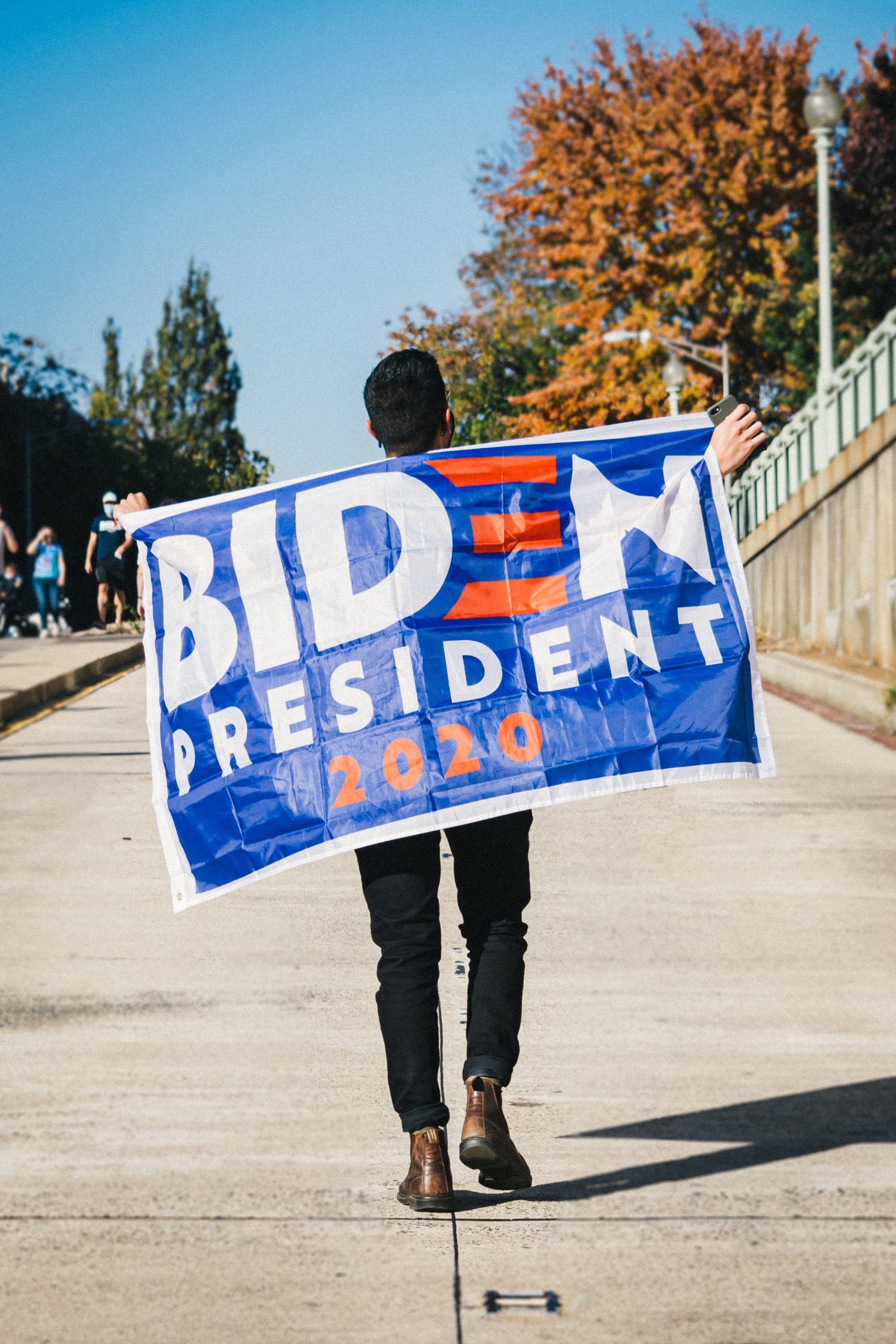Photo by Gayatri Malhotra on Unsplash
by Arun Kumar and Veena Mahor
The oldest and largest democracies are aiming for an overarching relationship to bring in a sustainable global order in this tumultuous time in history. Interestingly, the track record of Indo-US relations projects a promising future to engage with. Though the initial years of Indo-US relationships were cosmetic until the cold war era, later in the early 2000s, the relationships strengthened to new heights until present in almost all spheres. The most important being the defence cooperation. Also, over the years the Indian diplomacy matured enough to handle the global pressures.
Despite Biden being elected as President of the United States, who in earlier administrations worked closely for India, there seems to be uncertainty to the Indian aspirations especially in spheres of trade and technology. Though the geopolitics of the South Asian Region seems unusual, defence cooperation remains intact to bridge the Indo-US relationships further with the four foundational military agreements signed.
The strategic engagements of Biden are a confidence booster. It was under his chairmanship, the Senate’s Foreign Relations Committee backed the 2005 Indo-US Civil Nuclear Deal. This was well followed up during his tenure as the VP, for the Obama 1.0 administration. Biden under the Obama 2.0 administration played a central role in US Congress and brought in the JCPOA deal, in late 2015, which helped India to establish democratic diplomacy in the war-hit Afghanistan and reach a step further in energy security. Further, the higher education partnerships carried out during Obama-Biden’s administrations have strengthened people-people ties in areas of research and development.
Having said that, Biden’s international agenda for the promotion of democratic values heavily relies on his domestic aspirations, “I Make America Respected Again”. Also, to carry forward his aspirational foreign policy goals, he has to appease his fair share of citizens who are strongly influenced by Trumpism. So, there seems to be an imbalance between his twin aspirations, and it may directly or indirectly affect India especially when his aspirations focus on Asia.
The present common goals for both India and the USA are ensuring rules-based global order and trade, countering Chinese aggression, and bringing the nations together for the serious issue of climate change. Biden’s constant pitching for free and open Indo-Pacific synergizes with India’s pitch for a rule-based global order. This is supposed to be one of the major diplomatic convergence across South East Asia. The two major strategic partnerships in the region would be: One, the QUAD architecture encircling either side of the Pacific and its access to Indian Ocean Region will be helpful to counter/contain China’s footholds in the region. Two, being the recent invitation from US-led Blue Dot Network, which observers see as a means to counter China’s Belt and Road Initiative in the region, is a point in favour of India.
The strategic ties with the USA are strengthened with recently concluded BECA and LEMOA military agreements which further supplements India’s efforts in countering the transgressional threats across the ‘crown’ (UT of J&K and UT of Ladakh) and along the eastern sector. Further, India’s growing involvement in global mega-science projects provides us with a possibility of greater India-US research and educational collaborations. This could mean better employment opportunities for Indian but unfortunately with the downfall of ‘brain drain’. Also, Biden’s pro-immigration policy strengthens the permanent settlement of highly skilled professionals abroad. To sum up, a healthy engagement is in place between both India and the USA.
However, things are not all optimistic. Until Biden takes his position of Commander in Chief, Central Asian strategy remains sceptic with more American troops withdrawing from Afghan soil. The troop removal would enhance Pakistan’s deep state nexus with the Taliban thereby posing a threat to India along the western borders. This largely hinders India’s vision of rebuilding a democratic Afghanistan through Iran. Also, the future of the TAPI gas pipeline is also at stake posing an energy security issue for India. So, to absorb these energy shocks, Biden must undo the “maximum pressure” policy towards Iran by reiterating the JCPOA deal.
The trade tensions bring in many challenges, especially in the avenues of Intellectual Property Rights (IPR). Also, the long-stalled WTO’s Appellate Body appointments, that require consideration from the USA, for the fair disposal of trade disputes is also in the counter. Further, the allegations on human right violations of India, as seen earlier from the vice-president elect, will be a contentious area. Over and above the bilateral challenges, the unilateral withdrawal of the USA from WHO, UNHCR, UNESCO and Climate Pact leading to the isolationism of the USA has created a vacuum for global leadership.
Hence, Biden is in dire need of rectification of global policies for a peaceful multilateralism and India, with an established track record on international engagements, is the natural partner. To quote on the records, India recently got elected to UNSC as a non-permanent member for its eighth term (2021-22). India also got elected to WHO’s Executive body which brings in effect the decisions and policies of the World Health Assembly, the decision-making body of WHO. Further, India got elected to the UN Advisory Committee on Administrative and Budgetary Questions which too enriched India’s profile across international institutions. Above all, Biden also proposed to push India to become a permanent member of UNSC which reiterates India’s policy on UNSC reforms. So, all these together portrays the possible combinations of diplomacy to forge India-US relations further.
To recapitulate, the prime elements for a healthy Indo-US ties incepts from security, trade, immigration to all forms of diplomacy. The pronouncements of multilateral and Indo-Pacific strategies of India and the USA envisage a peaceful and sustainable global order, thus working on the fundamental principle of “Vasudeiva Kudumbakam”.

